Data reveals every mobile black spot in Queensland
Shocking mobile phone reception, affecting thousands of Queensland residents and hitting more than 65 schools, is putting lives at risk during emergencies like bushfires, sparking new calls for a universal service guarantee.
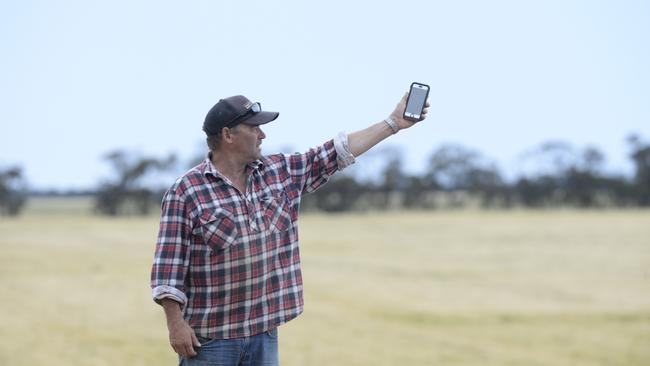
Gladstone
Don't miss out on the headlines from Gladstone. Followed categories will be added to My News.
Queensland residents say shocking mobile phone reception is putting lives at risk during bushfires while schools, businesses and major event organisers are being left red-faced by woeful connections.
Businesses say they have been left unable to process payments while residents are resorting to standing on hills and chairs in a desperate effort to get reception.
Regional Queenslanders have reported the same connectivity issues they had complained about more than a decade ago were ongoing in 2023, despite promises by the federal government and telcos to fix black spots.
The Nationals Party is now calling for government intervention to extend the Universal Service Guarantee to mobile phones and mandate mobile roaming, claiming telcos have “failed” to provide adequate services for regional, rural, and remote areas.
One resident told of how in a recent bushfire, communications between emergency services dropped out with the fire brigade members forced to travel door to door to get key messages out.
Elderly residents relying on lifesaving technology for medical alerts to notify neighbours, family or friends said they were particularly vulnerable.
The Australian Competition and Consumer Commission recently blocked a deal between Telstra and TPG — citing the negative effect on infrastructure-based competition — which would have allowed TPG to transfer its regional and urban fringe sites to Telstra in exchange for access to its regional network.
The Mobile Black Spot Locations Database (last updated in 2018), reveals poor coverage zones across Australia reported by members of the public, and helped inform the Federal Government’s roll out of the Mobile Black Spot Program.
SEE THE FULL LIST BELOW
While the reported black spots were not independently tested to verify the level of mobile coverage, it gave an insight into Queensland’s dire need for increased connectivity and competition.
The Albanese Government has since committed to a national audit of mobile coverage, working with Australia Post, to better understand and identify coverage shortfalls and inform future investment and policies.
More than 65 schools and a further one hundred “public interest premises” — such as campgrounds, sports grounds and roadhouses — were included on the list, exposing the tyranny of distance impacting regional and remote Queenslanders in key sectors such as education, health and tourism.
Since 2018, the Mobile Black Spot Program has invested $174m towards 250 base stations across Queensland, with 212 of these stations already complete, however, the connectivity chasm between the city and the bush remains.
Queensland Teachers Union president Cresta Richardson welcomed government investment in improving internet services in state schools, however, said there was “plenty of work” still needed.
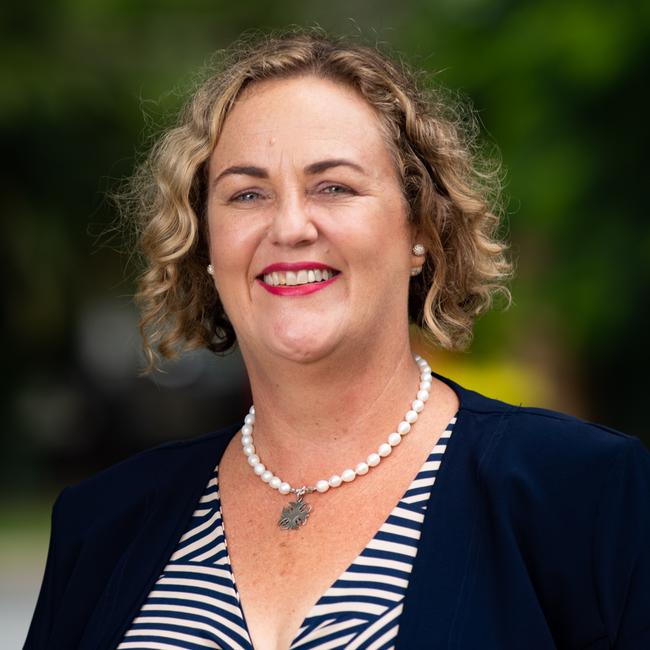
“Consistent internet reliability, bandwidth and access remain areas of concern in regional and remote communities, as does the more pressing issue of staffing these regions,” Ms Richardson said.
SEE THE FULL LIST OF SCHOOLS
In the October Budget, the Federal Government recommitted to upgrades in 54 target locations, announced during the election campaign, which include 27 locations in New South Wales but only four each for Queensland, Victoria, and South Australia.
‘LABOR SEATS WINNERS IN BLACKSPOT PROGRAM’
National Party leader David Littleproud is accusing the Labor Party of “playing politics” with mobile coverage black spots by claiming a majority of the target locations were in Labor-held seats.
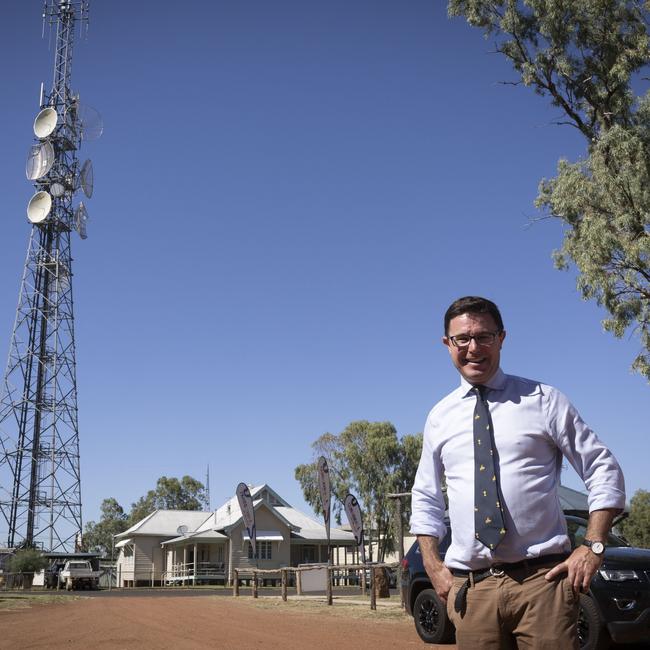
“In Labor’s first announcement on the program, Labor has blatantly prioritised Labor-held electorates as requiring upgrades for mobile coverage black spots … they need to explain why mobile coverage is more important in Labor seats,” Mr Littleproud said.
It comes as Mr Littleproud said the Universal Service Guarantee — a consumer protection ensuring everyone can access landline telephones and payphones regardless of location — must be reformed and extended to mobile phones in order to grow the regions and “protect lives”.
“It’s critical as a safety and emergency response, enabling better commerce, business and social interaction in areas of limited network coverage,” he said.
Mr Littleproud said services would improve if mandated domestic roaming in rural areas was introduced alongside USG reforms and averaging provisions were removed which he said allowed Telstra to have landline customers without phones for “months”.
Here are the faces of Queensland’s digital shame.
TICKET QUEUES AND BOOKIE MADNESS AT RACES

With the September races washed out, visitors flocked to make the most of Taroom’s flagship New Year’s Eve Race, but connectivity issues plagued the event from the moment punters queued at the gate.
Taroom Races secretary Sarah Parry-Okeden said connectivity issues would have devastating impacts on major events in regional Queensland, as excited visitors were left with a sour taste in their mouth and denied the fun and convenience city folk took for granted.
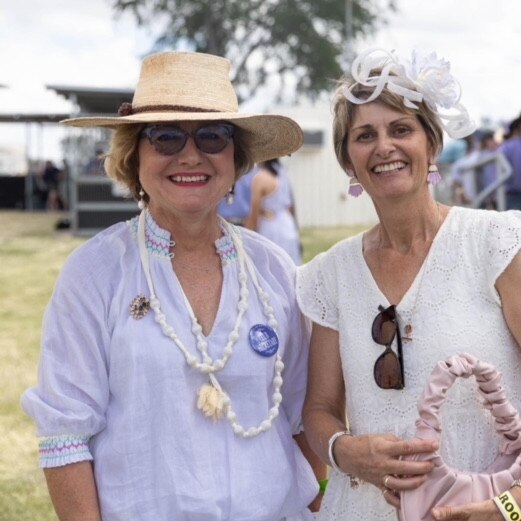
“If people didn’t have their ticket downloaded, they’d be stuck at the gate waiting for signal, and then once inside I know food vendors and bookies had significant issues processing payments,” Ms Parry-Okeden said.
She said there were short-term expensive solutions for some, but events which relied on volunteers and people travelling, did not have the resources to experiment with multiple carriers concurrently.
“Telstra is the one supposed to work in the bush … but when the signal is weak or in high-demand, people can’t simply swap over to another provider as they’re infrastructure isn’t here at all,” she said.
Ms Parry-Okeden said someone attempted to message her about their child needing medical attention because of an asthma attack and she did not receive a notification until several hours later.
BUSHFIRE DISASTER WAITING TO HAPPEN
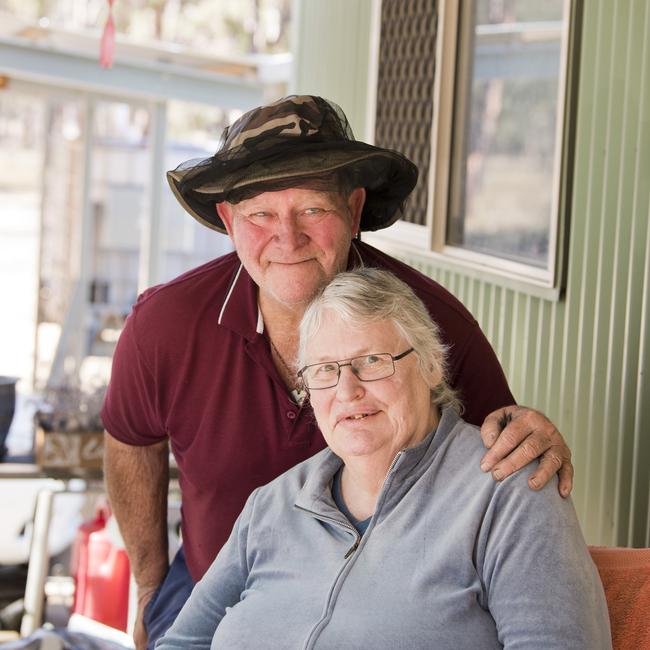
Norm Chapman said existing infrastructure cannot service people in remote communities during severe weather events because not much has to go wrong for all communication lines to drop.
Mr Chapman said during a recent bushfire, communications between emergency service personnel dropped out because satellite phones were clogging up the network and forced the fire brigade to travel door-to-door to get any messaging out.
“A major shortfall is a lack of back-up systems in place, such as generators, I recall speaking with a telco executive about that option and they simply told me they weren’t an electricity company,” Mr Chapman said.
He said remote areas like Cypress Gardens were home to a number of elderly people who used ‘medi-alerts’ to notify neighbours or friends if they were in trouble, however, due to dated and unreliable network coverage, vulnerable people cannot rely on the often lifesaving technology.
DECADE OF COMPLAINTS FOR BEACH TOWN
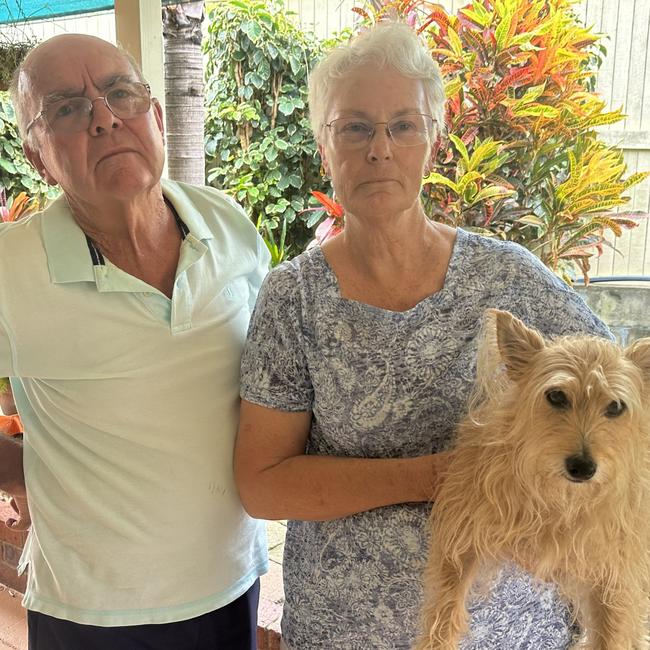
Dianne Harvey said she nearly falls off her chair when the phone rings, just to find out it’s a scam call, and claims local calls never make it through to her Mackay home.
“We stand by our clothes line, or we go stand out in the middle of the road, which is not a safe place to be holding a conversation, and of course, if you’re holding your hand up you can’t hear anyway,” Ms Harvey said.
She said her neighbourhood only messaged people using Wi-Fi, and that she no longer bothered giving her mobile out to people because “there’s no point”.
Performing simple actions such as banking remains impossible for residents surrounding Shoal Point, with security features demanding text message authorisation preventing them from conducting business.
She said another frustration over the past decade of complaining was network providers telling her she was in a new subdivision, according to their map, and she should have great reception, but that wasn’t her reality.
TOURISM HOTSPOT HIT BY TELCO WOES
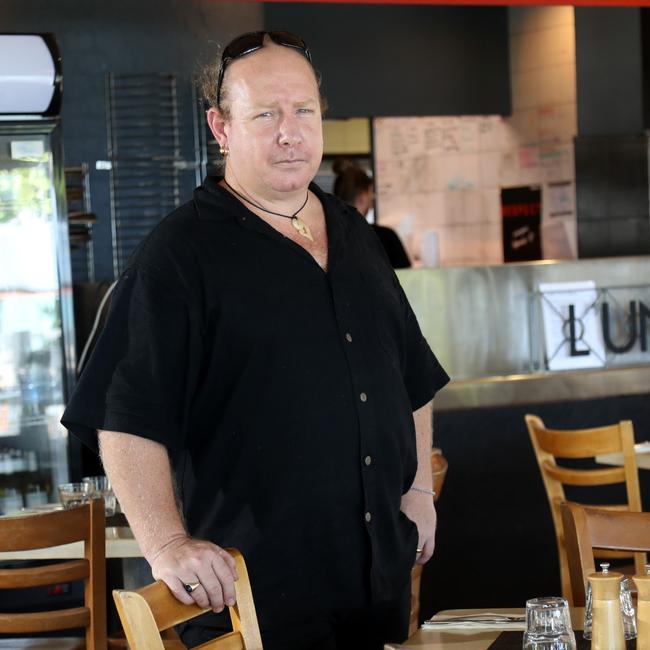
Trinity Beach esplanade has long been a place of grief for those looking to make a quick phone call let alone run a business and local business owner matt Turner said the telcos had effectively told him to “suck it up”.
“(It’s) 2023 and my business Wi-Fi is sub par,” Mr Turner said.
“This is also reflective on us as a region as we are a domestic and international tourist destination and are not able to provide an even basic level of reliable internet that you would expect from a large regional centre.”
Mr Turner said the response from telcos was unhelpful, and not only for his business but others in the local community like hotel staff and their guests, or high school kids unable to complete school work.
“Basically, it’s spend more money on trying to boost things yourself,” he said.
He said the impact of poor connectivity had a much broader impact on Trinity Beach because if one group of people do not have a positive experience, they return from holidays and tell people to steer clear.
“Put that against destinations like Thailand or Indonesia, much more bang for your buck and you get Wi-Fi.”
WHAT COMES NEXT?
Regional Development Australia recently funded a Central Queensland University digital study to examine issues and opportunities to improve long-term accessibility for a dozen local councils and shires across Central and Western Queensland.
RDA regional development director Tony Gambling said while there were several programs designed to improve regional accessibility — such as NBN CO’s $300m Regional Co-Investment Fund, and the Federal Government’s $600m Regional Connectivity Program — local governments were often too constrained to effectively lobby for digital infrastructure grants.
Mr Gambling said the “tyranny of distance” was no better encapsulated by the difference in health and education services for those living remotely.
“We can achieve remotely what we couldn’t have dreamt of a generation ago, such as telehealth, but that is reliant on a quality and stable connection, and right now many places can’t support a two-way video call,” Mr Gambling said.
He said the answer to boosting connectivity “wasn’t sexy” but regional Queensland needed more of the same, more investment in infrastructure and more competition between service providers.
“We need regional Queensland to continue thriving for generations, not least because that’s where our food and resources come from, we need people of all ages to live work and play digitally as effectively as those in the city,” he said.
Communications Minister Michelle Rowland said the government was committed to narrowing the digital divide and ensuring regional and rural communities had the connectivity they deserved.
$2.2 BILLION TO BE SPENT IN REGIONS
“The government has committed to one of the most significant regional telecommunications investment packages since the establishment of the NBN over a decade ago, with over $2.2b in regional telecommunications over the next five years, including significant investment across regional and remote Queensland,” Ms Rowland said.
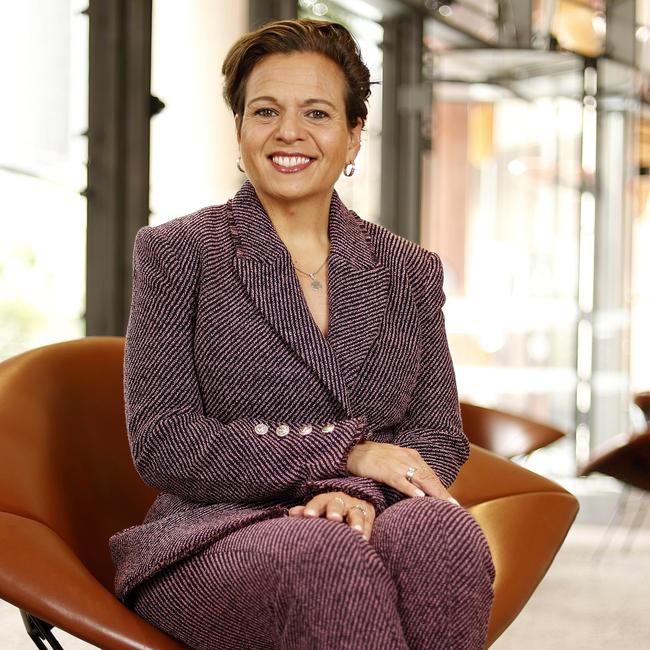
Rowland is encouraging individuals, industry, local government and communities to have their say to ensure the Regional Connectivity Program meets the needs of communities outside major cities.
“Public consultation has now commenced on the Albanese Government’s commitment to improve communications in rural and regional Australia through Round 3 of the Regional Connectivity Program, which includes a new stream to address mobile black spots.
Telstra regional general manager Rachel Cliffe noted that Telstra invested more than any other in regional and remote Australia, noting the network now covered one million square km more than its competitors.
“We continually investigate new opportunities to further expand our mobile coverage,” Ms Cliffe said.
“Providing regional connectivity is not just a Telstra responsibility, it’s a challenge that must be shared between … (all levels of) governments and with providers such as the nbn, us and other carriers,” she said.
Cliffe also advised that residents could improve their mobile coverage by using an NBN connection to access Wi-Fi calling, and encouraged business owners to talk to their bank about connecting their EFTPOS terminals to their nbn or Wi-Fi to prevent transaction delays.




